Publications
Articles, publications, books, tools and multimedia features from the U.S. Institute of Peace provide the latest news, analysis, research findings, practitioner guides and reports, all related to the conflict zones and issues that are at the center of the Institute’s work to prevent and reduce violent conflict.
Question And Answer
Amid a Changing Global Order, NATO Looks East
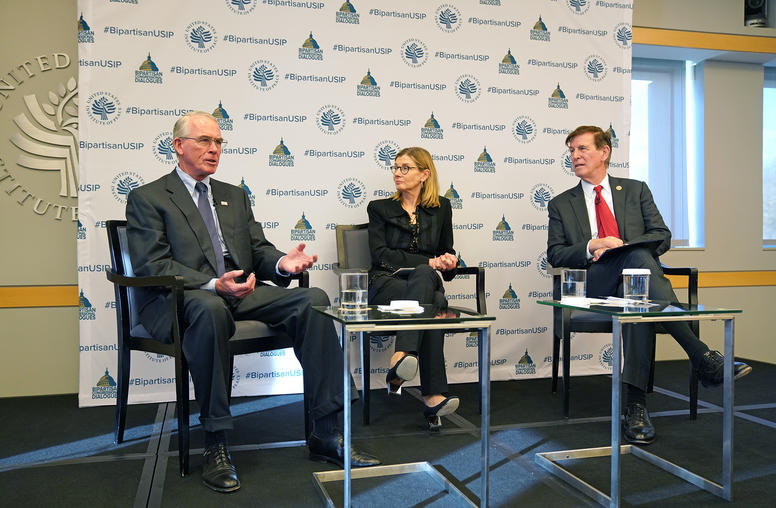
Can Soft Power Work in a Sharp Power World?
Speaking at USIP’s seventh Bipartisan Congressional Dialogue, Rep. Francis Rooney (R-FL) and Rep. Don Beyer (D-VA) discussed the threat posed by sharp power to global stability and how the United States, through bipartisan efforts, could use soft power to counter this threat.
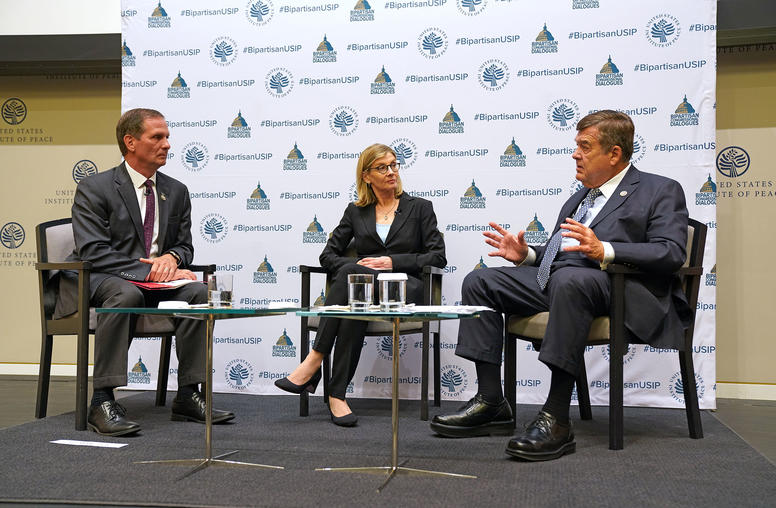
America’s Vital Needs on China Policy: Realism and Strategy
As U.S. national security debates focus heavily on the growing power and ambitions of China, two prominent members of Congress discussed how bipartisan policymaking can better protect America’s interests. Representatives Chris Stewart (R-UT) and Dutch Ruppersberger (D-MD) emphasized a need for strong engagement in Washington between the political parties, and for focused U.S. attention on China’s military buildup, intellectual property theft and cyber activities. Both congressmen are members of the House of Representatives subcommittee that oversees the U.S. foreign affairs budget, and both have played leading roles on national security and intelligence issues.
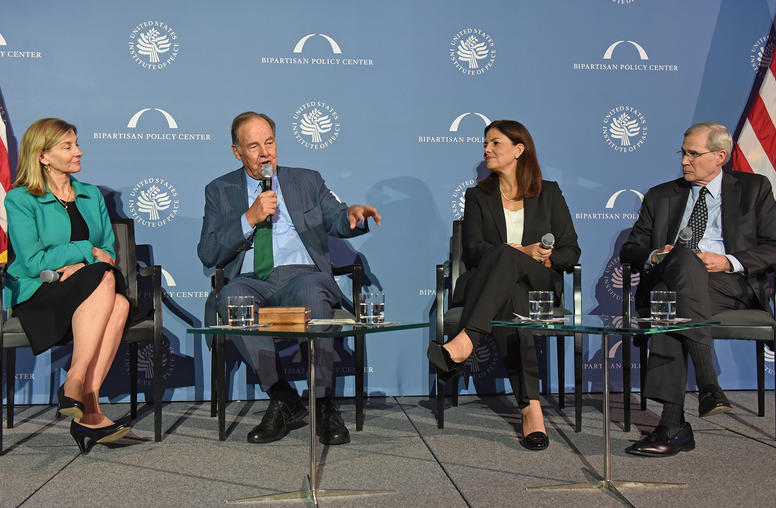
Terrorism has “Changed Dramatically” Since 9/11, Experts say Bipartisan Solutions Needed
Despite counterterrorism efforts that have “thwarted dozens of plots and thoroughly disrupted terrorist capabilities,” we “cannot rest” in our efforts to prevent violent extremism, said Director of National Intelligence Daniel Coats Tuesday night at an event at the U.S. Institute of Peace. The event, co-hosted by USIP and the Bipartisan Policy Center on the 17th anniversary of 9/11, recognized 9/11 Commission chairs Gov. Thomas Kean and Rep. Lee Hamilton for their work leading the Commission and for continuing this work through the Task Force on Extremism in Fragile States.

Nancy Lindborg on Addressing Extremism in Fragile States
Seventeen years after the 9/11 attacks, Nancy Lindborg details the findings of an interim report from the congressionally mandated Task Force on Extremism in Fragile States. Convened by USIP, the Task Force will devise a comprehensive new strategy for addressing the underlying causes of extremism in fragile states, says Lindborg, a member of the Task Force.

Nancy Lindborg on Libya’s Role in the Migrant Crisis
Following a recent trip to Libya, USIP President Nancy Lindborg discusses how Libya has become the epicenter for refugees from the Middle East, Africa and South Asia migrating to Europe. “Even though the overall rates of migration into Europe have decreased,” says Lindborg, “they will continue as long as smuggling in Libya remains such a big business.”
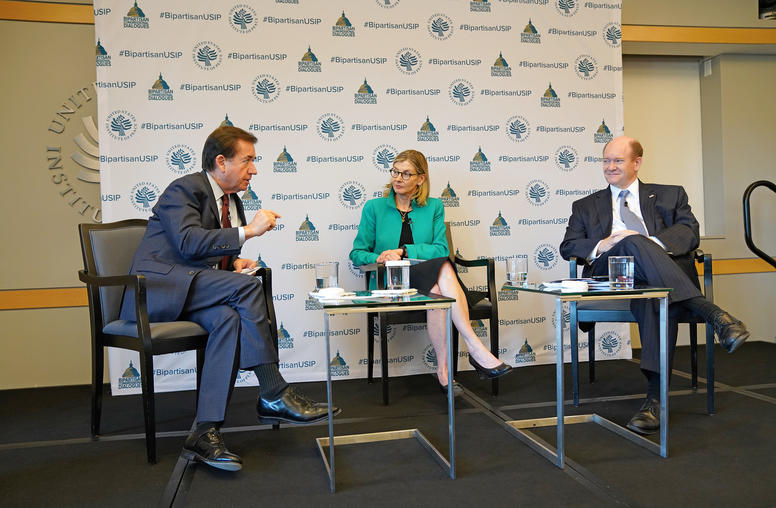
How Saving Rhinos Can Cut Poverty—and Even Terrorists’ Funds
By 2030 African black rhinos and elephants could face extinction as poachers and other criminals, including violent extremist groups, sell rhino horns and ivory to largely Asian markets. The trade in protected wildlife, worth an estimated $7 to $10 billion annually, not only endangers these species, it destabilizes communities and impedes sustainable economic development.
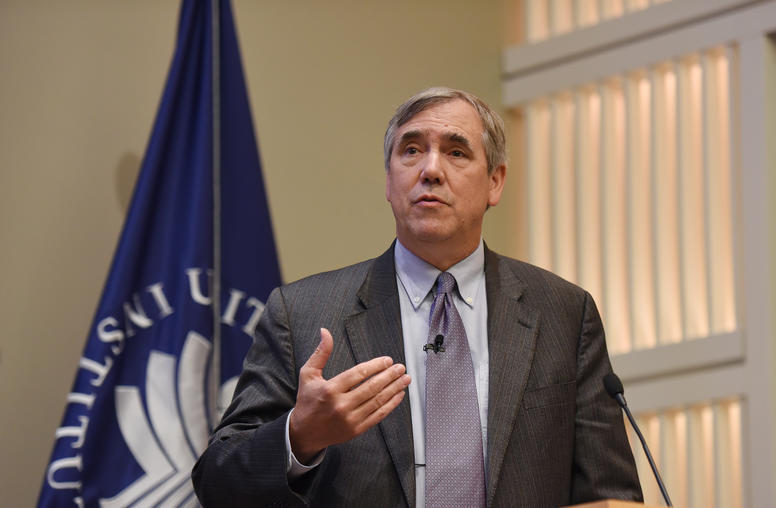
The U.S. Can’t Give Up on Africa’s Crises
After a trip to assess humanitarian crises in some of the world’s most troubled nations, U.S. Senator Jeff Merkley said he concluded that a matrix of conflict, corruption and “climate chaos” is driving one of the biggest periods of displacement in modern history.
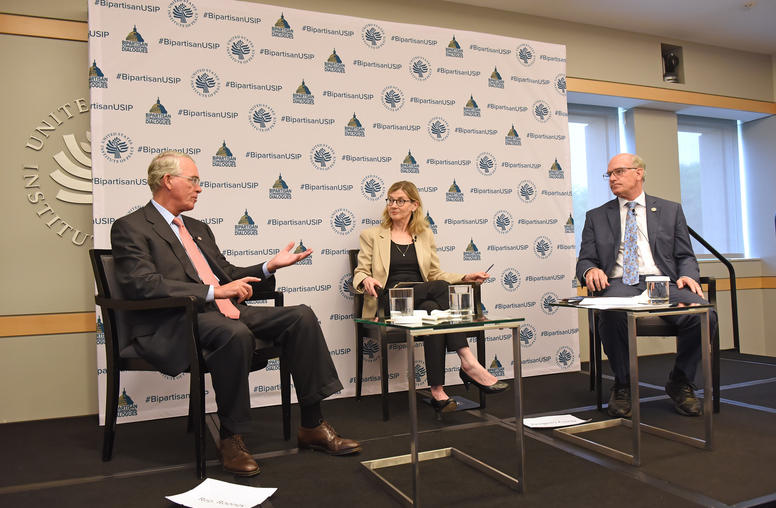
Russia’s Disruptive Ambitions Require a Bipartisan Response
For over a decade, Russia’s Vladimir Putin has campaigned to subvert the liberal world order and undermine global norms by invading neighbors and interfering in democratic processes at home and abroad. To explain how Congress can counter Russian aggression, members of the House Foreign Affairs Subcommittee on Europe, Eurasia and Emerging Threats Rep. Francis Rooney (R-FL) and Rep. Bill Keating (D-MA) came together for a bipartisan dialogue at the U.S. Institute of Peace.
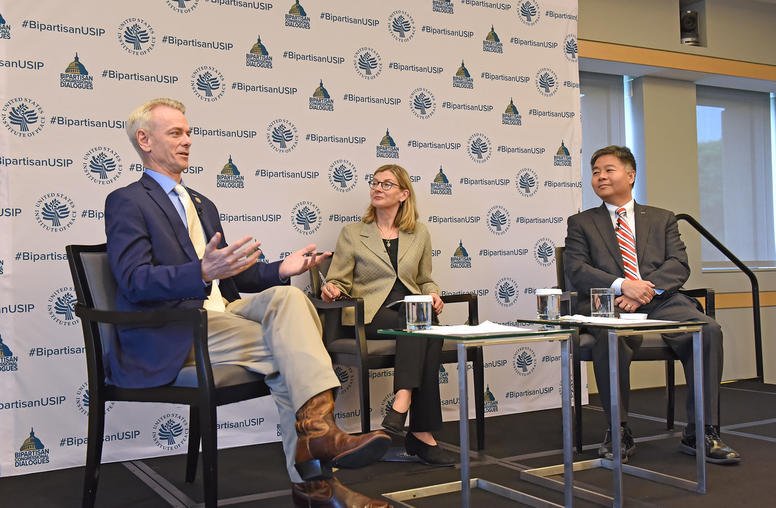
North Korea and the Fine Print of a Deal
With significant uncertainty surrounding the proposed Trump-Kim summit scheduled for June 12 in Singapore, South Korean President Moon Jae-in is in Washington this week to ensure the historic meeting happens. Whether its sanctions relief or appropriating peacebuilding funds, the U.S. Congress will play a pivotal role in any settlement with North Korea. Amid questions about Pyongyang’s intent and past negotiating behavior, Steve Russell (R-OK) and Congressmen Ted Lieu (D-CA), both military veterans, offered their support for the Trump administration’s participation in the summit during a bipartisan dialogue at the U.S. Institute of Peace.
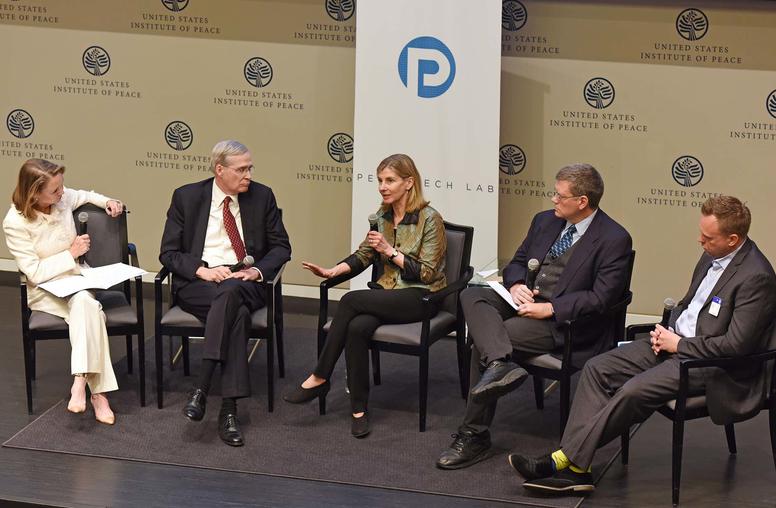
How 'Peace Tech' is Changing Global Conflict
As technological innovation develops at a blistering pace, it has fundamentally altered how conflicts develop and play out, and how peacebuilders prevent and mitigate violence. Throughout history, technology has driven warfare and international security.